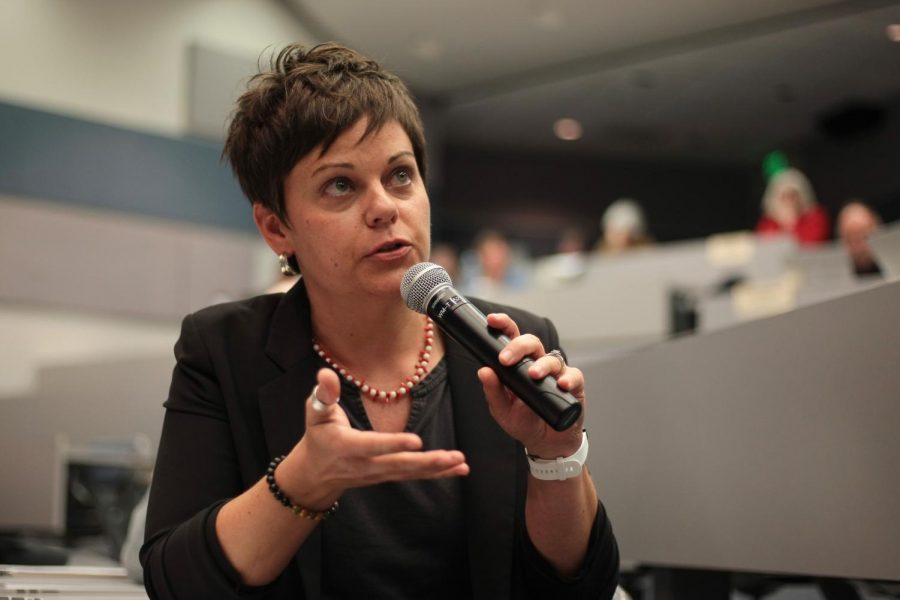Faculty raises concerns on proposed title changes
Senate members want to continue discussion, make sure changes would not demote positions
BEN SCHUH | THE DAILY EVERGREEN
Denise Yost, WSU faculty senator and FAC chair of CAHNRS, responds to faculty concerns regarding a proposed change to the WSU faculty manual that would potentially affect job titles and tenure tracks at the faculty senate meeting on Thursday at the Food Science and Human Nutrition building.
March 28, 2019
Faculty Senators discussed concerns about proposed changes to faculty titles at the meeting Thursday.
Denise Yost, assistant professor for the College of Agricultural, Human and Natural Resource Sciences, said the proposed non-tenure track changes include four sub-track categories, and instructors with primary teaching duties recognize the status of non-tenure track positions.
“It allows for instructional excellence to continue recognizing that not all [who] teach have all terminal degrees,” Yost said.
Vilma Navarro-Daniels, associate professor of Spanish and American studies, said she would like to continue the discussion about title changes. The faculty would feel negatively about this document if it was implemented, she said.
“People are afraid about demotion because the language in the document must be specified about alternative credentials,” Navarro-Daniels said.
Charles Weller, an assistant professor for the College of Arts and Sciences, said it is clear in the academic world that his title in his professional associations and his department matters.
“The title of assistant professor, regardless [of] whether I am associate or full, whether it has clinical appendant, does make some difference,” Weller said.
Yost said many of them worked to recognize and support the importance of each role at this university.
“The teaching faculty are as important as any other in the system,” she said.
Navarro-Daniels said it is important to keep working on the changes in order to make sure everybody at WSU knows that this would not be considered as a demotion.
Yost said current clinical track faculty who do not have terminal degrees will not be forced into the sub-track category because they have already proven valued track records in the university.
Weller said he earned his doctorate degree and is concerned about the credential issue. If his title changed from clinical assistant professor to clinical associate professor, he said it will be devastating for his career and colleagues.
Yost said they cannot address every important issue, but they can work to push any issues of appointment they may have and continue to improve the university recognition for each faculty member.
“I think there is huge value in recognizing, that is equally as important as someone in a clinic, as someone who does 100 percent research [and] as someone who also might have a scholarly appointment,” Yost said.









